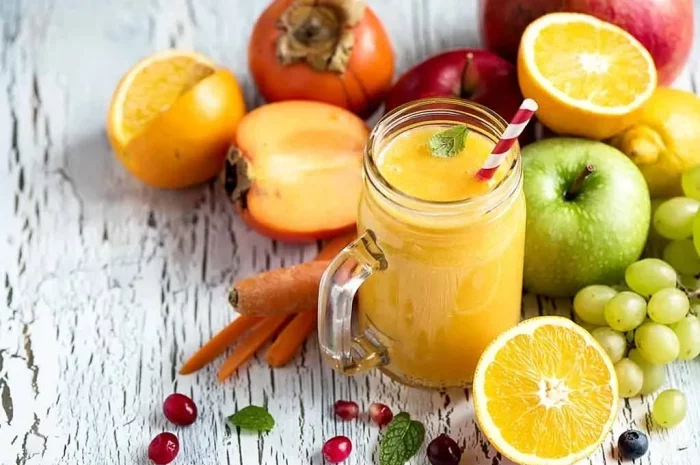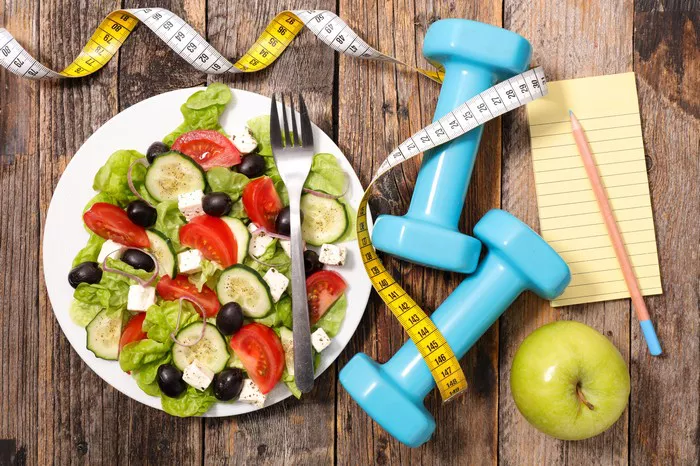High blood pressure, or hypertension, is a prevalent health condition that affects millions of people worldwide and is a significant risk factor for various serious cardiovascular diseases such as heart attacks, strokes, and heart failure. While medications are often prescribed to control blood pressure, incorporating certain natural juices into your diet can also play a beneficial role in managing this condition. These juices are rich in nutrients, antioxidants, and bioactive compounds that can help relax blood vessels, reduce inflammation, and support overall cardiovascular health. In this comprehensive essay, we will explore a wide array of natural juices that have shown promise in helping to lower and manage high blood pressure, delving into their specific components, the scientific evidence behind their effects, and how they can be incorporated into a healthy diet.
Beetroot Juice
Nutritional Profile: Beetroot is a root vegetable that has gained significant attention in recent years for its potential health benefits, especially in relation to blood pressure. Beetroot juice is rich in several key nutrients. It contains vitamins such as vitamin C, which is an antioxidant that helps protect the body’s cells from damage caused by free radicals. Vitamin C also plays a role in the synthesis of collagen, an important protein for maintaining the integrity of blood vessels. Additionally, beetroot juice provides minerals like potassium, which is crucial for maintaining proper fluid balance in the body and regulating the electrical activity of the heart.
One of the most notable components of beetroot juice is its high nitrate content. Nitrates are inorganic compounds that are converted into nitric oxide in the body. Nitric oxide is a signaling molecule that has vasodilatory properties, meaning it helps relax and widen blood vessels. This dilation of blood vessels leads to a reduction in blood pressure by allowing blood to flow more easily through the circulatory system.
Scientific Evidence: Numerous studies have investigated the effects of beetroot juice on blood pressure. In clinical trials, participants who consumed beetroot juice regularly showed significant reductions in both systolic (the top number in a blood pressure reading, representing the pressure when the heart contracts) and diastolic (the bottom number, representing the pressure when the heart relaxes) blood pressure. For example, some studies have reported that consuming around 250 milliliters of beetroot juice daily for a few weeks can lead to a decrease in systolic blood pressure by an average of 5 to 10 mmHg and a similar reduction in diastolic blood pressure.
The mechanism behind this blood pressure-lowering effect is mainly attributed to the conversion of nitrates in beetroot juice to nitric oxide. When nitric oxide is produced in the body, it signals the smooth muscle cells in the walls of blood vessels to relax, resulting in increased blood vessel diameter. This improved blood vessel function not only reduces blood pressure but also enhances blood flow to various organs, providing additional health benefits.
How to Incorporate into Your Diet: Beetroot juice can be easily incorporated into your daily routine. You can make fresh beetroot juice at home using a juicer. Simply wash and peel the beetroots, cut them into small pieces, and run them through the juicer. It’s advisable to combine beetroot with other fruits or vegetables to improve the taste, as beetroot juice on its own can have a strong, earthy flavor. For instance, you can blend it with apples, carrots, or oranges. Another option is to purchase ready-to-drink beetroot juice from the market, but make sure to choose ones without added sugars or excessive preservatives. You can drink beetroot juice in the morning on an empty stomach or as a refreshing beverage throughout the day.
Pomegranate Juice
Nutritional Profile: Pomegranate juice is a rich source of antioxidants, including polyphenols such as ellagitannins and anthocyanins. These antioxidants are responsible for the deep red color of pomegranate juice and play a crucial role in protecting the body from oxidative stress. Oxidative stress occurs when there is an imbalance between the production of free radicals and the body’s ability to neutralize them with antioxidants, and it is linked to various chronic diseases, including hypertension.
In addition to antioxidants, pomegranate juice contains vitamins like vitamin C and vitamin K. Vitamin C has multiple functions in the body, including supporting the immune system and acting as an antioxidant, while vitamin K is important for blood clotting and bone health. Pomegranate juice also provides minerals such as potassium, which is beneficial for maintaining healthy blood pressure levels by counteracting the effects of sodium and helping to regulate fluid balance in the body.
Scientific Evidence: Research on pomegranate juice and blood pressure has yielded promising results. Several studies have shown that regular consumption of pomegranate juice can lead to a reduction in both systolic and diastolic blood pressure. The polyphenols in pomegranate juice are thought to have multiple effects that contribute to this blood pressure-lowering effect. They may help improve endothelial function, which refers to the health and proper functioning of the inner lining of blood vessels. When the endothelium is healthy, it can produce substances like nitric oxide more effectively, leading to better blood vessel dilation and improved blood flow.
Cranberry Juice
Nutritional Profile: Cranberry juice is renowned for its potential health benefits, especially in relation to urinary tract health, but it also has properties that can be beneficial for managing high blood pressure. It contains a variety of phytochemicals, including flavonoids like proanthocyanidins. These compounds have antioxidant and anti-inflammatory properties, which can help protect the blood vessels from damage and reduce inflammation within the cardiovascular system.
Cranberry juice is also a source of vitamins such as vitamin C and vitamin K, along with minerals like potassium. The potassium content helps in maintaining the body’s fluid balance and can counteract the effects of excessive sodium, which is often linked to high blood pressure. Additionally, cranberries are low in calories and can be a good option for those looking to manage their weight, as maintaining a healthy weight is another important factor in controlling blood pressure.
Scientific Evidence: Studies on cranberry juice and blood pressure have shown some positive associations. While the evidence may not be as extensive as with beetroot or pomegranate juice, some research suggests that regular consumption of cranberry juice can have a modest impact on blood pressure. The antioxidants and phytochemicals in cranberry juice may help improve blood vessel function by reducing oxidative stress and inflammation. For example, in some small-scale studies, participants who consumed cranberry juice daily for several weeks showed a slight decrease in systolic blood pressure.
Conclusion
In conclusion, incorporating natural juices into your diet can be a beneficial and enjoyable way to support the management of high blood pressure. Juices like beetroot, pomegranate, cranberry, orange, grape, tomato, and celery offer a range of nutrients, antioxidants, and bioactive compounds that can help relax blood vessels, reduce inflammation, and improve overall cardiovascular health. However, it’s important to be aware of factors such as sugar content, potential interactions with medications, and to view these juices as part of a holistic approach that includes a healthy lifestyle.
Related Topics:

























